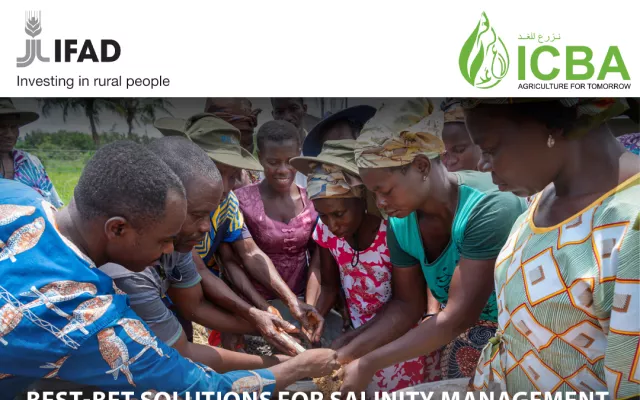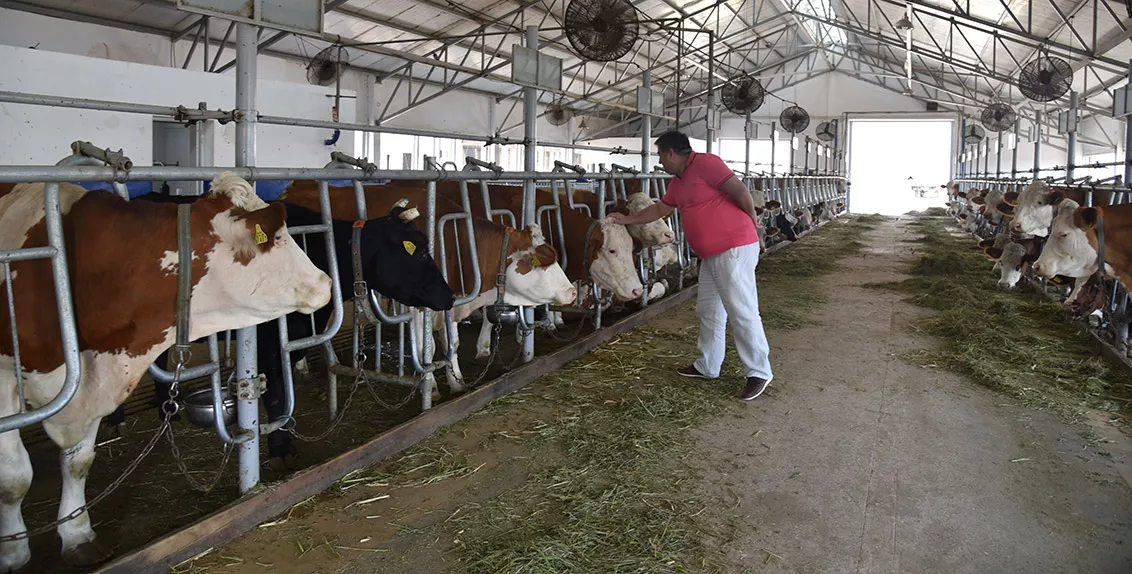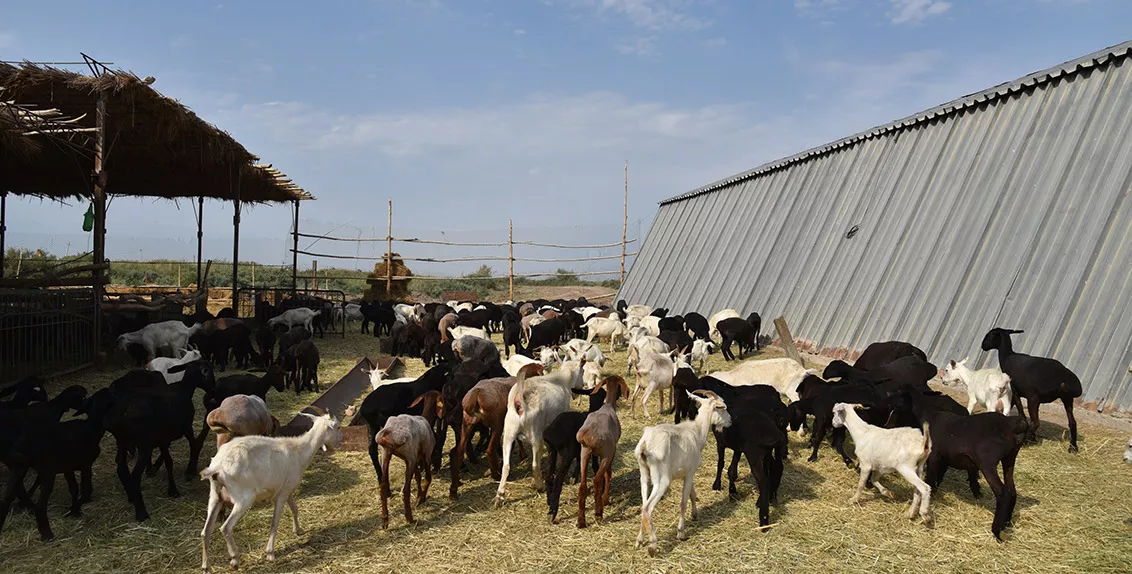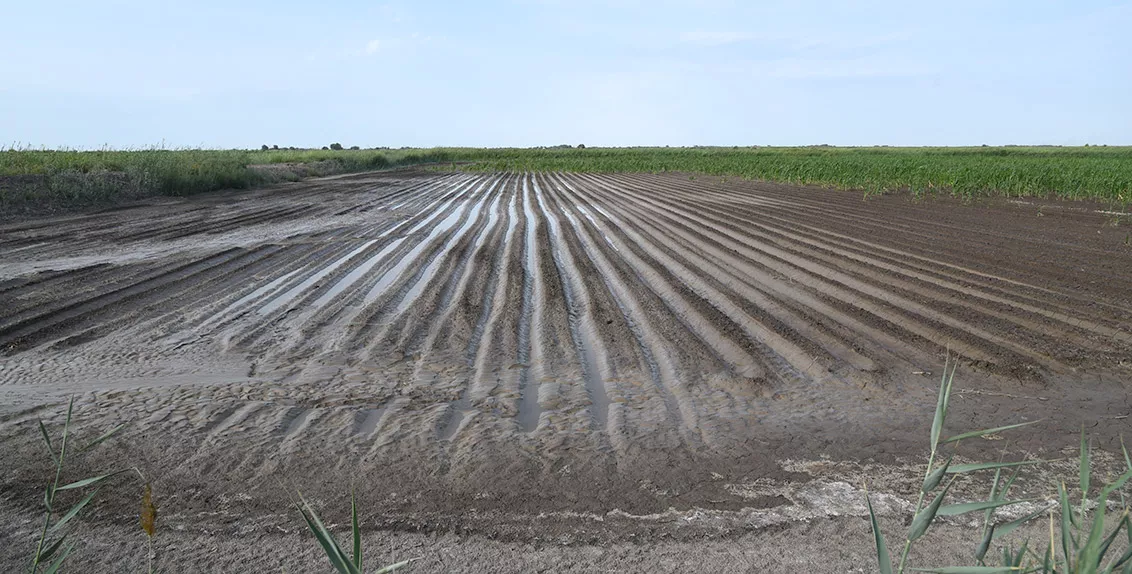Agribusiness in northwestern Uzbekistan bets on new crops to cope with salinity
11 December 2018
Like many children, Kutlimurat grew up with love for animals. When he was young, he had his own small zoo with a rooster, pigeons and rabbits. But his strict father would not let him keep them. One day, after returning from a summer camp, he found the rooster missing. “I could not hold my tears back when I saw it had been cooked for dinner,” he recalls.
Throughout the years, from working for the government to switching to the private sector, he kept his love for animals in secret. The turning point came when Kutlimurat went abroad to learn about best agricultural practices.
Today Mr. Kutlimurat Panaev is one of the most prominent people in the agricultural sector of Karakalpakstan, an autonomous republic within Uzbekistan, heading more than 600 people working at his family-owned business, which covers the areas starting from construction to farming and dairy production.
Every day more than four tonnes of milk produced by 160 cows and 300 goats is processed at the Pana Milk factory. He also owns 300 Gissar sheep and plans to acquire milk-producing sheep for making cheese.
“Determination is the key to success,” he says. As a newcomer to farming, he encountered some obstacles like shortage of water and soil salinity widespread in the Aral Sea region.
“In water-scarce regions, every drop of water counts,” says Dr. Kristina Toderich, Regional Coordinator of the International Center for Biosaline Agriculture (ICBA) in Central Asia and the Caucasus. “To keep the soil salinity low, 12,000 cu. m. of water is required for one hectare of land per year. When it is not available, salt returns to the river through drainage water from irrigated fields. The location of Karakalpakstan also adds to the problem. As it is the destination of the Amudarya River’s geochemical flow, salt accumulation in soil and groundwater is exponential.”
With the support from ICBA, a small weather station and sensors to measure soil temperature, salinity and groundwater levels were installed in Kutlimurat’s field. The obtained data will enable scientists to create a road map to cultivate appropriate crops depending on weather variability, soil conditions and water availability in the field.
For Kutlimurat, who annually produces more than 2,000 tonnes of silage for his cattle, it is of paramount importance. Next spring, he plans to cultivate amaranth seeds, provided by ICBA, in 100 hectares of land. Amaranth can be used for the preparation of silage and highly nutritious feed mixtures, along with sorghum, millet, corn and leguminous crops. Its green mass can be obtained in two cuts for the growing season.
Further joint initiatives include the creation of farmer schools to enhance the capacity of local farmers and share knowledge on sustainable farming, resource-efficient technologies and introduction of alternative salt-tolerant crops in the region.
Kutlimurat does not like to be in the limelight and calls himself a patriot. As a proof, he wears locally produced apparel and shoes and consumes only locally grown food. “This is the place where I was born,” he says. “Only with joint efforts we can help our country prosper. It is time now to give back to the community. At the end of the day, what you have given back matters more than what you have achieved.”












